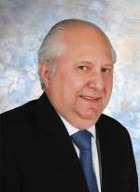Four Japanese motorcycle manufacturers, Honda, Yamaha, Suzuki and Kawasaki, said they have agreed to share the same battery specifications for electric motorcycles. By sharing the same removable replacement battery, they will increase convenience. The battery charger to be developed in the future will also be standardized.
For small scooters, it is difficult to increase the size of the battery to extend the cruising range due to the small size of the vehicle, and thus the frequency of recharging is high. The detachable battery type will be more convenient, as it can be exchanged for a fully charged battery at the battery exchange station.
Source: The Nikkei
PSR Analysis: In April 2019, the four companies set up a consortium to discuss battery commonality; agreeing to commonality is an achievement. This was the minimum necessary point to reach in order to prevent confusion caused by conflicting specifications, such as whether to use VHS or Beta. In addition, there had never been a case in the past where four companies had worked together to accomplish something, and in this sense, it was probably significant.
Standards have been agreed upon for battery structure, characteristics, protection circuits, communication protocols for charging, and stations that will serve as exchange infrastructure. However, the size, weight, capacity, and shape of the batteries are outside the scope of the cooperative area and will be handled by each company, in other words, a competitive area.
The agreement is related to replaceable batteries (and replacement stations) for first-class mopeds (under 50cc) and second-class motorcycles (under 125cc). As for the electrification of medium and large motorcycles, all four companies will continue to develop technologies and products as before.
In my opinion, it has taken two years to build this consensus, which is far too long. Taiwan’s Gogoro, KIMCO’s Ionex, and others have already released many EV bikes, and recharging stations have become widespread, especially in urban areas, and the bikes are already functioning as a part of our daily lives. As international competition intensifies, there will be more and more cases where the traditional Japanese sense of speed will not be able to cope. PSR
Akihiro Komuro is Research Analyst, Far East and Southeast Asia, for Power Systems Research





